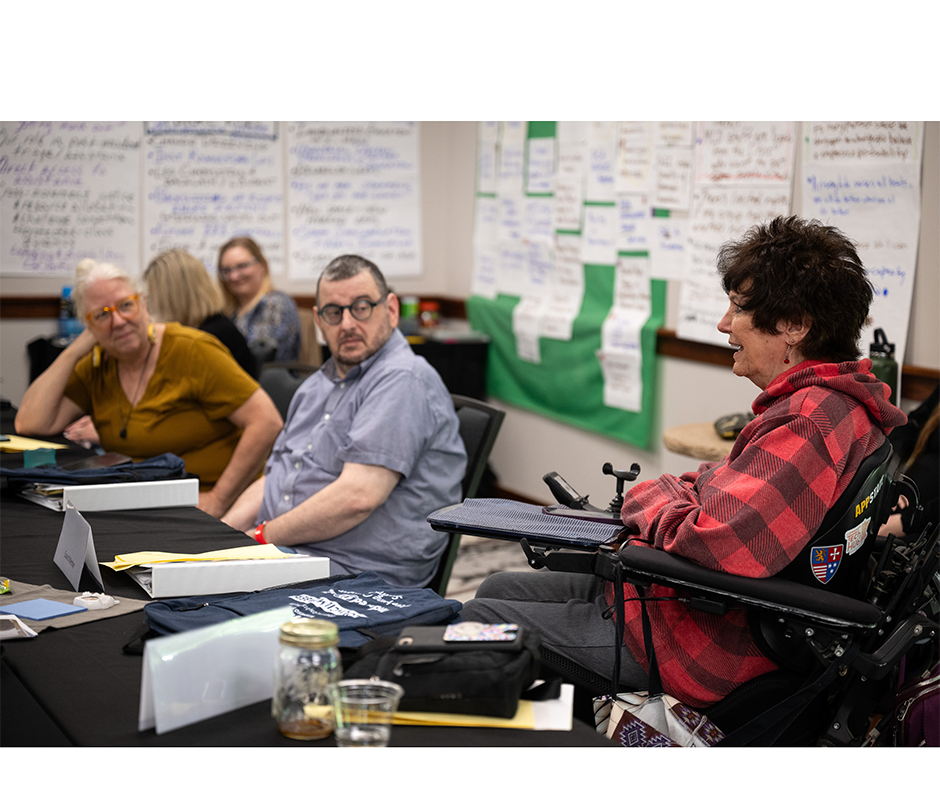 MCD shares the following guest post from Ray McCoy, Minnesota Department of Employment and Economic Development. Note: MCD does not endorse any particular product or service.
MCD shares the following guest post from Ray McCoy, Minnesota Department of Employment and Economic Development. Note: MCD does not endorse any particular product or service.
Minnesota’s ERAF Program
The Employer Reasonable Accommodation Fund (ERAF) helps Minnesota businesses create inclusive workplaces by providing financial support for employee accommodations. This program makes workplace accessibility more achievable for small and mid-sized businesses.
Support and Eligibility
ERAF reimburses businesses for workplace accommodations, including but not limited to, assistive technology and ergonomic tools. The program offers:
- Coverage up to $30,000 per fiscal year
- Support for Minnesota-based businesses with:
- Fewer than 500 employees
- Less than $5 million in gross annual revenue
Covered Accommodations
ERAF supports various workplace accommodations. Examples of covered solutions include:
- Assistive technology tools
- Ergonomic equipment and workstation modifications
- Other reasonable accommodations that support employees with disabilities
ERAF offers free consultations for you to explore accommodation options. Email ERAF at eraf.deed@state.mn.us or call 651-539-2390 or 1-833-391-8050.
Applying for ERAF
- Identify accommodation needs
- Complete the application with business and employee information
- Submit documentation, including receipts
Resource Guide: Accessibility Solutions Reference
Whether seeking ERAF support or exploring other funding options, here’s a guide to common accessibility solutions.
Ergonomic Tools and Office Equipment
Ergonomic tools can significantly enhance comfort and productivity for employees with physical disabilities. Many essential ergonomic tools are available through popular retailers. Here are some cost-effective options.
Ergonomic keyboards and mice are designed to reduce stress on hands and wrists benefit people who have carpal tunnel syndrome or arthritis. Basic ergonomic keyboards and mice start at $20-$50 on Amazon.
Adjustable chairs with lumbar support and sit-stand desks promote better posture and reduce physical strain. Budget-friendly options for chairs start around $100 on Amazon, while adjustable desks begin at $200.
Document holders and writing aids such as pen grips support employees who need accommodations for writing or handling paperwork. These items typically cost less than $20 on Amazon.
Assistive Technologies
Assistive technologies can greatly improve the productivity of employees with sensory, cognitive, or communication disabilities. The following are some options that are not too expensive.
Screen readers convert text and image information into speech. NonVisual Desktop Access (NVDA) is free, while Job Access With Speech (JAWS) offers additional functionality at a higher price point.
Screen magnifiers like ZoomText offer annual licenses starting at $85, with perpetual licenses from $880. SuperNova Magnifier is available for approximately $545.
Speech-to-text software transcribes spoken words into text. Entry-level versions of applications like Dragon NaturallySpeaking start around $50.
Task management apps can help people meet deadlines. Trello and Todoist offer free basic versions with visual and audio reminders.
AI tools can improve overall productivity. ChatGPT supports drafting text and summarizing information. Grammarly checks written work for grammar and clarity. Both can assist employees with learning disabilities.
Cognitive training platforms like Lumosity and Elevate offer exercises to improve memory, focus and problem-solving skills. Most provide free or low-cost options.
Noise-canceling headphones like Bose QuietComfort help people with auditory sensitivities maintain focus in noisy environments. Effective models start around $200.
For more information about assistive technology, including free device trials, visit Minnesota’s STAR Program.
Physical Accessibility Features
Basic modifications can make physical spaces more accessible.
Portable ramps for single-step entrances start at $50 on Amazon. Many fold for easy storage and placement.
Grab bars for restrooms begin at $20 for basic models on Amazon.
Lever door handles allow easier opening without relying on hand strength or dexterity. Basic models start at $15 on Wayfair.
Digital Accessibility
Ensuring digital content is accessible is crucial in today’s workplace. Affordable solutions include:
- Microsoft’s accessible Word templates for creating usable documents
- Adobe’s guidelines for creating accessible PDFs
- Website accessibility plugins like UserWay or WP Accessibility, which offer free versions with essential features
Additional Financial Support Programs
Beyond ERAF, federal tax incentives through the Internal Revenue Service (IRS) can help offset accessibility-related costs
The Disabled Access Credit (IRS Form 8826) helps small businesses with revenue under $1 million or fewer than 30 employees cover ADA-required accommodations. It covers 50% of eligible expenses between $250 and $10,250, providing up to $5,000 annually.
The Work Opportunity Tax Credit offers up to $2,400 per qualifying hire for businesses employing people with disabilities. Employers must complete IRS Form 8850 before or on the offer date and file within 28 calendar days of the employee’s start date.
The Barrier Removal Tax Deduction (IRS Section 190) enables businesses to deduct up to $15,000 annually for architectural barrier removal, such as installing ramps and widening doors.
For tax incentive information, visit the IRS resource page.
Making Accessibility Achievable
With ERAF support and various funding options, small businesses can create inclusive workplaces that benefit everyone. Contact ERAF today to learn how they can help you implement accessibility solutions that work for your business and employees.